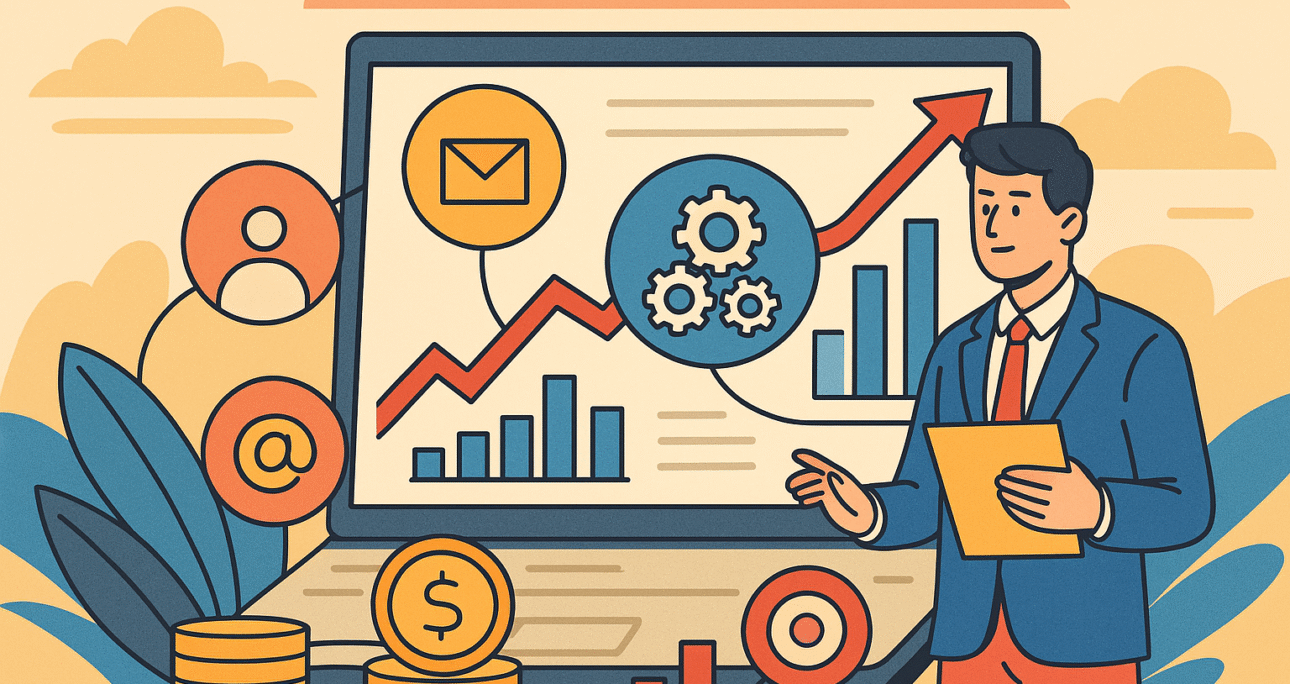Implementing a solid marketing automation strategy is one of the most effective ways to increase your brand’s productivity. According to Forbes, automation helps marketers save time, improve targeting, and make smarter decisions based on real-time data.
Why Automation Matters
To begin with, automation removes the burden of repetitive tasks. Email scheduling, audience segmentation, and lead nurturing workflows can run in the background, allowing teams to focus on strategy and creativity. As a result, businesses experience improved output without adding new personnel or costs.
Moreover, automated processes ensure consistency. Whether you’re delivering weekly newsletters or retargeting ads, automation ensures nothing is forgotten or delayed. This leads to a smoother customer journey and stronger engagement.
Enhance Personalization with Less Effort
Another powerful benefit is personalization. When connected to CRM systems, automation tools can segment audiences and send tailored messages based on user behavior. For example, a user who clicks a product link can instantly receive a follow-up email, increasing the chance of conversion.
This level of responsiveness builds trust and keeps the brand relevant. Additionally, it prevents generic messaging, which is often ignored.
Make Data Work for You
Automation tools not only execute tasks—they also gather valuable insights. Open rates, bounce rates, conversions, and more can be tracked and analyzed. Forbes recommends using this data not only to assess campaign results, but also to improve future ones. With every automation, your strategy becomes smarter.
Start Simple, Scale Later
If you’re just starting out, it’s wise to begin small. Forbes suggests launching with a basic email drip campaign or a lead scoring system. Once you see what works, you can scale your strategy to include more advanced automation across channels.
Importantly, don’t rely entirely on automation. Creative storytelling and human oversight are still key. While tools can execute, only marketers can connect emotionally with the audience.
A well-structured marketing automation strategy combines efficiency with engagement. With the right balance of tools and human insight, your brand can grow faster—and smarter—than ever before.
Source: Forbes





